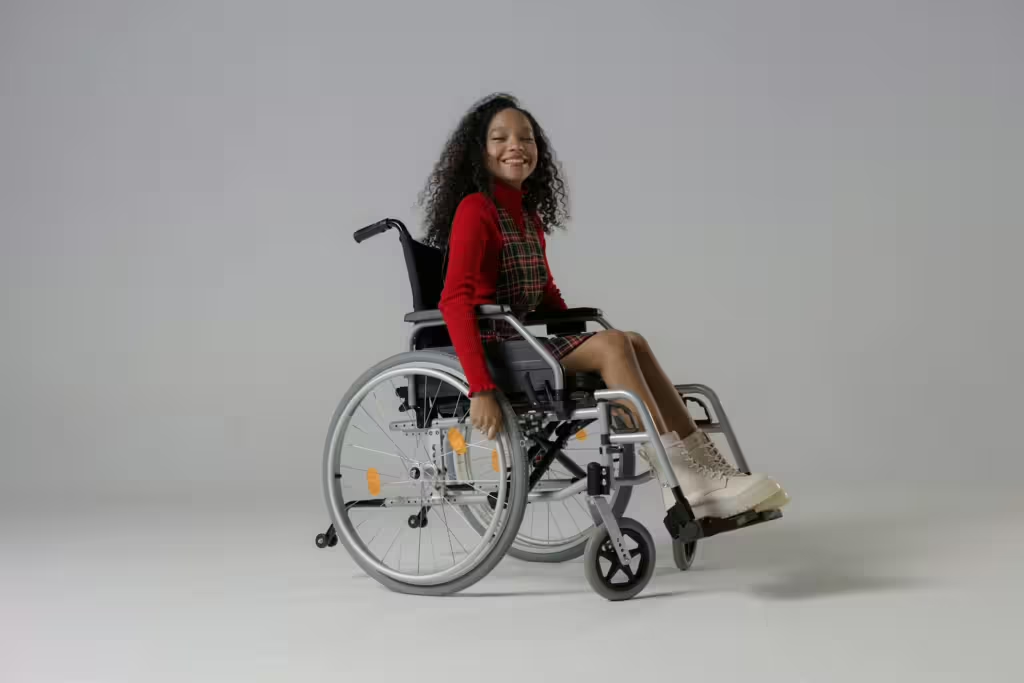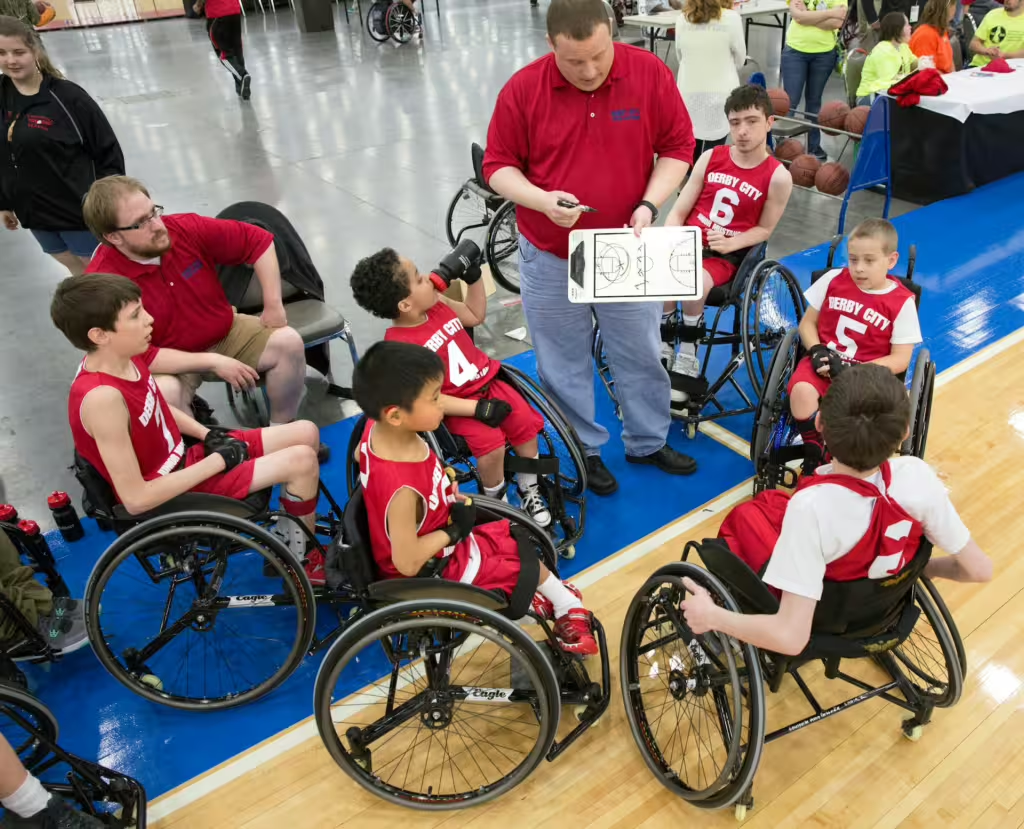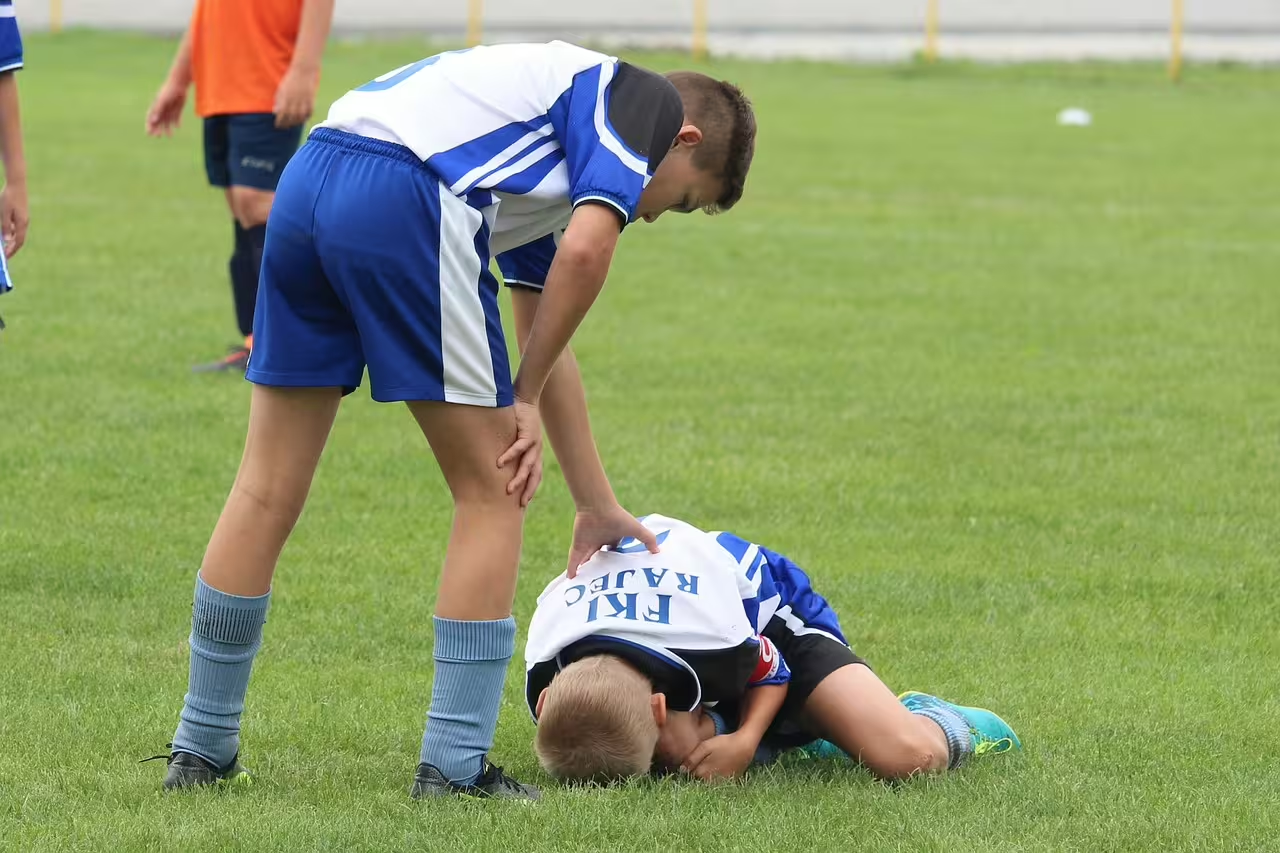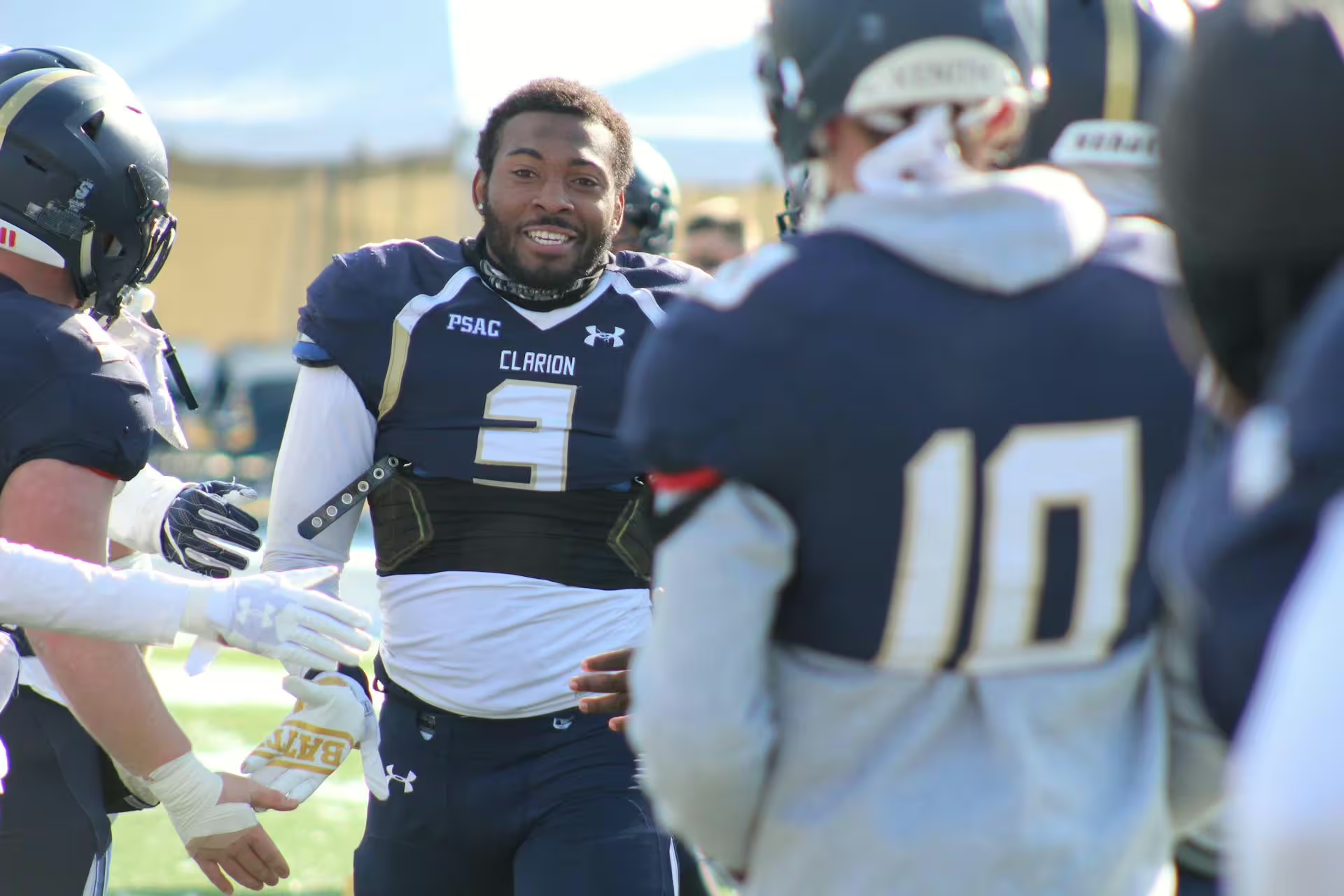Parents are always trying to do what’s best for their children. This is something that everyone who enjoys this website, readers and writers alike, really appreciate. It hits home, driving our desire to learn more and be better for our children. We want them to eat right, be healthy, learn proper behavior, and do well in school. For those of us who have children with a taste for sport, the desire to see them do and be their best is no different. And ultimately, all of this is just as much of a concern for those us who care for children with special needs.
The truth is, whether your child has special needs or not, sports remains an excellent extracurricular activity to help them in a myriad of ways. Whether it’s fostering teamwork, building confidence, promoting physical fitness, or teaching important life lessons, sports can offer valuable benefits for a child and even for the parents who live and care for that child. As parents ourselves, we have learned that participating in sports isn’t just about the physical side of things; it’s about empowering children and cultivating a sense of belonging for everyone involved.
Nevertheless, finding the finding the right sports program for a child can be something of a change, doubly-so if your child happens to have special needs. For many parents, even the online search portion of this journey can feel like navigating a maze. With that in mind, we have put this article together as a means of helping parents navigate the vagaries of special needs sports. By the end, we hope to impart key lessons that can benefit not only other parents but coaches, and the wider community as well.
Embracing the Diversity of Abilities

If you are a parent who has already had a child join a special needs sports program, it might be easy to feel overwhelmed, not just emotionally, but in terms of understanding. Many parents might be questioning if the experience would truly benefit their child. Remember, when it comes to parents of children with special needs, every child has their own unique challenges and those parents tend to think they know the best way to meet those needs. They might ask themselves some hard and frankly, wrongheaded questions, such as;
“How could the coaches and teachers possibly understand how to effectively work with their child as well as I can?” or “Does my child they feel isolated or different without me there to help?” It is only when they get into a situation like this and learn a different perspective, that the perceived truth behind those fallacies begins to unravel.
The good thing is that parents quickly come to realize, the truth; that special needs sports aren’t just about physical differences. These types of programs embrace a diverse range of abilities, personalities, and learning styles; and they are equipped to handle each and every one of them. This is because one of the main tenets of special needs sports programs is about fostering inclusivity. The focus is most often on meeting children where they are, whether that means offering more one-on-one attention or adapting the games that fit the child’s individual needs.
The best aspects of these programs lies in their inherent diversity. That diversity teaches children and parents a very important lesson: everyone has strengths, and everyone brings something valuable to the table. For your child, the chance to learn alongside other kids with unique abilities might help them to build up their self-esteem or their sense of belonging. Whatever the case may be, the lessons learned on the field—of acceptance, patience, and mutual respect—are just as valuable as any technical skill a child might develop during the course of their overall education.
The Power of Adaptation
It may help parents to learn that special needs sports programs generally don’t feature any sort of “one size fits all” approach. Each child in these programs has their own challenges, behaviors, and mitigating circumstances to consider, so what works for one child might not work for another, and that’s exactly how they like it!
As a result, coaches of special needs sports programs often go above and beyond to adapt the games, activities, and even their coaching methods to meet the specific needs of the children in their care. These types of changes could involve everything from changing the rules of a game, to offering different levels of physical support for each different child. Many of these coaches even employ sensory-friendly equipment to ensure that every kid feels comfortable and included in the fun.
There is often nothing more heartwarming or validating than watching your child play a game that was adapted just for them. Perhaps the coaches reduced the complexity or adjusted the timing to make it more enjoyable, achievable, and skill-enhancing for that batch of players. In many ways, witnessing such behavior can reframe nervous thinking and drive home the idea that sports can be for everyone, regardless of where they start.
Building Emotional Resilience Through Sports
Sports offer children from all walks of life the rare opportunities to face challenges in a supportive and encouraging environment. This concept is especially pertinent for children with special needs and it can be quite transformative, in a very positive way. When children face setbacks—whether it was missing a ball, falling during a race, or losing a game—the important thing they need to remember is that it isn’t the end of the world. This is a hard concept for anyone to swallow, especially if that child already feels as though they can’t do certain things. Fortunately, the atmosphere in special needs sports programs tends to focus on trying and trying again, learning from one’s mistakes, and celebrating the effort that a child puts into the activity rather than just the outcome.
This emphasis on perseverance is the secret sauce that makes special needs sports programs so unique, special and valuable. As parents, we have been teaching our children that it’s okay to fall down since the beginning, but we have also taught them that this mindset works best as long as they also get back up and try again. In this way, special needs sports helps build an emotional resilience that will last a child’s entire lifetime. As children experience more of what special needs sports has to offer, they learn to handle frustration, disappointment, and excitement in a way that is both manageable and rewarding.
Social Skills and Friendships
At the heart of every sports team or sports experience is the concept of community. In special needs sports, that community is not limited to the play group, but can often encompass the coaches, parents, and siblings of the players. These types of situations often grows from fair weather sports colleagues into a group of close-knit friends who support one another both on and off the field of play.
Children with special needs are particularly well-served by the socializing aspect inherent in sports. Indeed, sports can be a powerful way for any marginalized child to develop valuable social skills, but more importantly, it’s a way for them to make friends. Whether it’s learning how to share the ball, high-fiving a teammate after a great play, or cheering someone on during a tough moment, small social interactions build their way into big friendships.
Children often form tight bonds with teammates who they might not have otherwise connected with in school or in other environments. The key to such positive relationship development lies in the simplicity of having a shared experience. Kids who are part of a team often form powerful connections with teammates as they learn the value of cooperation, empathy, and kindness. These friendships aren’t as fleeting as some parents might. believe, either, and they often open the door to deeper connections that can last far beyond the final whistle.
Parents as Partners: The Role We Play

As parents of children with special needs, we are generally counted among the ranks of our children’s’ biggest supporters, but we aren’t the only ones. Coaches and volunteers play a critical role in special needs sports, teaching and encouraging them in ways that are often outside our purview. That said, we as parents are an essential part in the process. We support out children from the sidelines, acting as their biggest fans. Yet, we also need to take the time to collaborate with coaches about our child’s individual needs.
A parent’s involvement makes a great deal of difference, as we tend to be the ones who can help reinforce the lessons learned on the field at home. In the late hours, before bed, it is up to us to remind our children about the importance of trying their best, respecting others, and staying active.
Being involved also means being present for the emotional highs and lows that sports are bound to bring up in our child’s life. We can help them dust themselves off when they fail, certainly, but so can their coach. What we have to do is take each and every opportunity to celebrate even the smallest of victories. Not even just catching a ball or making a goal, but simply making a new friend or learning a new skill. Those types of little moments are just as important to the development of children with disabilities as the more athletic ones.
Unseen Benefits of Special Needs Sports
While the visible benefits of special needs sports—such as improved coordination or increased physical activity—are obvious to anyone with eyes to see, there are numerous hidden benefits that parents might not even notice right off the bat. Children who engage in these programs often see improvements to their communication skills. It often doesn’t even matter if a child is verbal or non-verbal, they might just show a better sense of telling people what they want and how they feel.
Additionally, some kids actually find that they develop better spatial awareness when they play team sports. At the same time, others gain a greater understanding of cause and effect as they practice and master new moves they may have never even thought of doing before. These and so many more benefits extend far beyond the playing field, creating positive effects on both their behavior and learning in other areas of life.
Finally, sports have the ability to help children with special needs develop a greater sense of independence. Some parents may not like to hear it at this stage, but this type of development is a vital part of their future lives. As they play, children learn how to navigate a structured environment, manage their emotions, and take responsibility for their own actions; all things that they will need in greater, more complicated quantities as they grow up. The benefits of newfound independence can make a significant difference in the overall development of any child, especially when that child has thus far needed their parents, aids, coaches, or friends to do everything for them.
Finding the Right Program for Your Child
As a parent, it can be difficult to know which program will be best suited to your child’s unique needs. We’re here to allay your feels a bit in this regard. The truth is, not all programs are the same, and it often takes spending time in several to learn that different children will thrive in different environments. Some may do well in more structured, competitive sports, while others may prefer recreational, less competitive activities. If you want to know which one your child will do best in, research is the key.
Parents can visit local programs, talk to the coaches, and see how they tailor their approach to children with special needs. Learn about the coaches, the training modules, and the safety equipment. Look at how the program aligns with your child’s interests and learn how it can accommodate their challenges and requirements. Above all else, don’t be afraid to ask questions.

Cultured Athlete Says…
As you can see, special needs sports aren’t just a chance for children to play; they’re an opportunity for them to learn how to make friends, learn independence, and do things they never knew that they could. This can be a transformative experience and one that you can also become enriched by. As parents, we have the privilege of watching our children grow and develop, and through sports we can see them do this in meaningful, surprising, elating ways.
If you’re considering enrolling your child in a special needs sports program, take that first step sooner rather than later. Do your research, look for programs that supports your child’s needs, encourages their growth, and makes them feel like they belong. Your child will thank you for it—and you will be glad that you did so.
Discover more from CulturedAthlete
Subscribe to get the latest posts sent to your email.






